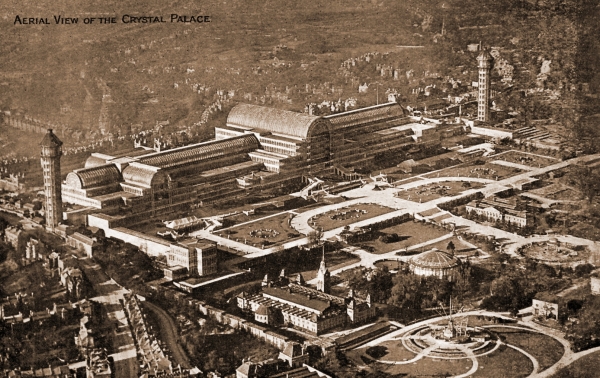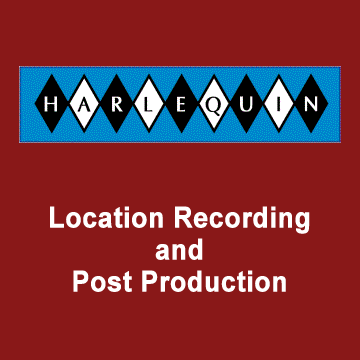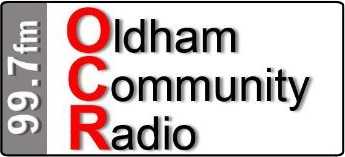In the wider world a century ago, Louis Bleriot was successfully making the first aeroplane flight across the Channel, and that took just 43 minutes. This was probably not something the members of the Burton Latimer Britannia Band and musical director Charles Baker, would have given much thought to, they had more important things to consider, with last minute rehearsals for the 10th National Brass Band Festival at the Crystal Palace.
Back in those days, you could buy 100 cigarettes for five bob (25p), and Harrogate was described as a 'delightful health resort'. Other than banding business, something that was not overlooked in 1909, was described as the 'Peoples Budget'.
With its new welfare proposals, and unprecedented tax increases for the well off. One hundred years ago being 'well-off ' was described as someone who earned more than two thousand pounds a year. Their new tax contribution was going up to 1/9 in the pound (just under 10p), along with something new called Inheritance Tax.
To make it even worse for the well-to-do classes was the proposed introduction of a new Land Tax as well. The budget was not passed in the House of Lords, before, the new land tax had been dropped.
David Lloyd George's new pension for the elderly went through as well, whilst it was limited in its early years, it was the basis of what retired people receive today. Whether many of the 60,000 spectators or the 5000 competitors at the 1909 festival benefited from this new pension, we will never know.
One hundred and thirty four bands took part in the brass band festival, with eighteen bands competing in what was described as the 'Blue Ribbon' championship section event.
Looking through the list of competitors in the championship section, familiar names immediately draw your attention; Foden's Motor Wagon Works, Black Dike Mills (note the spelling in those days), Wingates Temperance, bands that still battle it out at the higher end of banding today.
Casting an eye down the lower sections there are some more familiar names; Slaithwaite, Felling Colliery, Old Silkstone, Stanhope Silver, Cwmaman, Ripon City, South Elmsall and Frickley Colliery and Dinnington Colliery.
But what ever happened to Biggleswade Silver, Rotherhithe Men's Own, Boots Plaisaunce, Perfection Soap Works, Denaby Main Ambulance or Armley and Wortley bands. Sadly, all these and many more have long since disappeared into the mists of time, and confined to the history books.
Looking back at a couple of these old bands it is interesting to see how their histories played out. For example the Boots Plaisaunce Band, this was a band started by Jesse Boot from the Boot's Chemist family of Nottingham.
At Plaisaunce, the Boot family's summerhouse, employees were invited to afternoon entertainments, with music, dancing, athletics, swimming, and in the evenings sometimes fireworks.
Jesse Boot provided a set of instruments for an employees' band, and Florence Boot chose the uniforms; Lincoln green, light green collar and cuffs, and silver braid. Jesse Boot arranged for the band to be coached by a professional conductor, Mr Alexander Owen, and in June 1908, the band took part in its first contest at Lincoln.
In 1909, the band won first prize in the Junior Cup section at the Crystal Palace; after the First World War, it was affiliated to the scout movement. The band was later re-named the Beacon Silver Band, but its playing days came to an untimely end when the instruments were destroyed when the printing department building was bombed in 1941.
Then there was the Leeds based Armley and Wortley Band, a band that was still performing in the 1950s. Whilst little information has survived about this band, but in the days of it competing at the Crystal Palace, the soprano player was the Grandfather of the late Fred Muscroft, that doyen of a cornet player with the 1960s and 70s Yorkshire Imperial Metals Band.
Fred's father was a cornet player in the Life Guards, and did not have the time to teach his young son the rudiments of cornet playing. However, Oliver his Grandfather did, and gave his Grandson the best start any young cornet player could have had. Not just in the art of cornet playing, but in reminiscing about the old days when he was contesting at the Crystal Palace on soprano and Fred's Dad was on solo cornet. Granddad would wax lyrically over the day they played with the old Armley and Wortley Band in the second section, playing Zampa, an overture that never sounded better after its performance.
Once these bands had faded into the history books I wonder what ever happened to their music libraries and any photographic memories they had.
To have a photograph taken in those days would have been something very special, the day when the photographer came to the bandroom to catch that special moment. A moment that would be framed and then proudly displayed on the walls of even the most dilapidated of bandrooms.
Looking back to that great day on September 25, 1909, with the winners of five of the nine previous championships all taking part again, surely this year's winner would once again be decided between Foden’s, Black Dike, Wingates Temperance or Irwell Springs. These were of course the bands upper most in spectators’ minds, and surely one of them would be 1909 champions – or would they....
By far the greatest number of bands taking part was from Yorkshire, with Lancashire, the Midlands, Wales and the London areas each having a reasonable representation.
A few of the bands arrived on the Friday evening, but most were in the capital by early Saturday morning. There were hectic scenes at St Pancras, King's Cross, Euston and Paddington stations. Finding suitable rehearsal rooms was the annual problem, but bands set up where ever space allowed, anywhere from railway platforms, waiting rooms, refreshment rooms and even outside newspaper stands.
Those unable to find a suitable place made their way to Sydenham and rehearsed anywhere they could find near the Crystal Palace.
Whilst the crowds began to gather making their way in a typically British orderly fashion, rumours were circulating that this year there was a 'dark-horse' in the championship section.
At 10.30, plenty of time before the contest was due to start, the ten bands chosen to play in the evening concert were already practising. Under the batons of John Henry Iles, Sam Cope and Walter Nuttall, the conductor of the Irwell Springs, the 1908 champions. Bands chosen for this year were - Batley Old, Black Dike, Clydebank Burgh, Foden's, Goodshaw, King Cross Subscription, Perfection Soap Works, Wingates Temperance, London Prize and Irwell Springs, being last year's winning band its soloists would all take the lead parts at the concert.
The contest started promptly at noon, the main interest being the outcome of the championship section, which band at the end of the day would be the 1000 Guinea Challenge Trophy Champion Band of Great Britain and the Colonies. This was the question the three judges. Lieutenant Charles Godfrey, James Ord Hume and James Brier had the unenviable task of deciding.
The evening concert started at 6.30; pieces included the 1908 test piece Selections from Rienzi. Try to visualise 250 musicians playing this piece, conducted by Walter Nuttall, what an awesome sight and sound it must have been in the famous glass palace.
As the final chords of a wonderful concert were brought to a close by John Henry Iles, the moment everyone had been waiting for had finally arrived – the results.
In sixth place was King Cross Subscription Band of Halifax, and was considered to have been a terrific achievement for its young up and coming conductor Arthur Oakes Pearce. This young man was only conducting the band because William Rimmer who had originally been asked to conduct. However, with little more than two weeks to go had decided he could not fit it into his hectic rehearsal schedule.
Little did the world of brass bands know at that time the young Arthur O. Pearce was to become one of the most famous and well known names in brass bands for the next forty years.
Arthur O. Pearce was one of twelve children; he was born in October 1871 in Wakefield, and was the son of Peter and Caroline Pearce (nee Oakes). Whether it was his father's employment as a gardener that forced him and his family to move from Wakefield and to seek work elsewhere, is something that has long since been forgotten. However, it was shortly after Arthur's twelfth birthday that he and the family moved to Ovenden near Halifax. Neither Arthur nor the rest of the family knew or realised at the time of this move that it was going to be so life changing for him.
Arthur came from a musical family with two of his brothers being tenor horn players. His first instrument was a side drum but from that introduction, he progressed on to the baritone, then tenor horn, the soprano and was later appointed the solo cornet at the Duke of Wellington's, West Riding Regimental Band.
It was whilst serving as a Volunteer Bandsman in the 'Dukes', he was appointed as the Deputy Bandmaster and Band Sergeant. His unassuming manner and ability as a band trainer was well appreciated, and he was respected by everyone.
At the turn of the century, he was also helping out at near neighbours Brighouse Temperance Band (re-named Brighouse and Rastrick Band in 1929), and was credited with guiding them through a particularly difficult period.
In 1909, he was appointed bandmaster at the King Cross Subscription Band, with William Rimmer as its professional conductor. After only a few months, he was very complimentary towards Arthur on the fine job he was doing.
King Cross Band undoubtedly prospered under AOP, which did his own reputation no harm at all. So much so that this reputation for being a good band trainer even reached the famous Black Dyke Mills at Queensbury.
In January 1912, he was appointed the new bandmaster at Black Dyke Mills Band, a position he was to hold until his final appearance with the band in January 1948, aged 77, at the Victoria Theatre in Halifax.
During his 37 years at Black Dyke he was estimated to have won £12,561 in prize money, and a total of 51 first, 37 second, 17 third, 8 fourth and 5 fifth prizes at contests. He led the band through 225 BBC radio broadcasts between 1925 and 1948. He was awarded the first Iles medal on 11, January 1948. On Saturday 17, January 1951 he died aged 79 years and is always remembered as the, '...Prime Minister of Bandmasters...'
In 5th place was South Moor Colliery, conducted by Angus Holden. Interestingly the winner of the concertina section contest was the Heckmondwike Concertina Band conducted by Mr J.C.Dyson. During the 1920s, he very successfully conducted South Moor at many contests and during the 1930s the Hanwell Band.
The 4th place went to Kettering Rifles, conducted by Alexander Owen, now I wonder what happened to that band?
The 3rd place was awarded to Perfection Soap Works, conducted by arguably the most famous of all the 'professional' conductors. It was said that between 1909 and 1935 William Halliwell really did have the golden baton.
In 2nd place conducted by William Rimmer was Foden's.
So was it the 'dark horse; everyone was talking about that became the 1000 Guineas Challenge Trophy Winners, Champion Band of Great Britain and of the Colonies for 1909, we will never really know.
The winner was Shaw Prize Band, and was appearing at the Crystal Palace for the fourth time. In 1906, it was placed 2nd, 1907 7th, 1908 4th, this band had made steady progress over the last four years to be finally crowned the champion band.
As all previous champions, it too was given a civic reception back home, when it was reported that 30,000 listened to the band reprise the test piece The Flying Dutchman in the Market Square.
The band was originally formed in 1868 and connected to the Shaw Church. The band's first effort at a contest was four years later, under the baton of Mr J. Lord, perhaps the lord was really on the band's side that day when it was awarded 2nd place.
In 1877, there was a rift between the church and band, resulting in it moving to the Queen Ann Inn (Cheetham Hill). Moving to a number of new premises over the next few years, even with this upheaval it made good progress on both the contest and concert stage.
Contest prize money enabled the band to purchase a new set of instruments, and then in 1893 the legendary conductor John Gladney took over the band, and brought it even more success.
Between 1901 and 1909, the band competed in over 50 contests and was in the prize money at almost them all, winning a reported one £1,021. The 1000 Guineas Challenge Trophy was the pinnacle of the band's success, and proudly displayed the trophy in its bandroom in Dale Street.
Sadly, like many other champion bands from the old days it is now confined to the annals of brass band history.





















